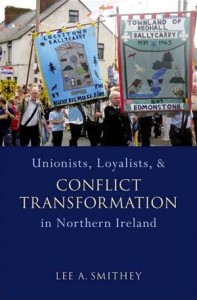In Northern Ireland, a once seemingly intractable conflict is in a state of transformation. Lee A. Smithey offers a grassroots view of that transformation, drawing on interviews, documentary evidence, and extensive field research. He offers essential models for how ethnic and communal-based conflicts can shift from violent confrontation toward peaceful co-existence. Smithey focuses particularly on Protestant unionists and loyalists in Northern Ireland, who maintain varying degrees of commitment to the Protestant faith, the Crown, and and Ulster / British identity. He argues that antagonistic collective identities in ethnopolitical conflict can become less polarizing as partisans adopt new conflict strategies and means of expressing identity. Consequently, the close relationship between collective identity and collective action is a crucial element of conflict transformation. Smithey closely examines attempts in Protestant/unionist/loyalist communities and organizations to develop more constructive means of expressing collective identity and pursuing political agendas that can help improve community relations. Key leaders and activists have begun to reframe shared narratives and identities, making possible community support for negotiations, demilitarization, and political cooperation, while also diminishing out-group polarization. As Smithey shows, this kind of shift in strategy and collective vision is the heart of conflict transformation, and the challenges and opportunities faced by grassroots unionists and loyalists in Northern Ireland can prove instructive for other regions of intractable conflict.
Unionists, loyalists, and conflict
Sobre
Talvez você seja redirecionado para outro site












